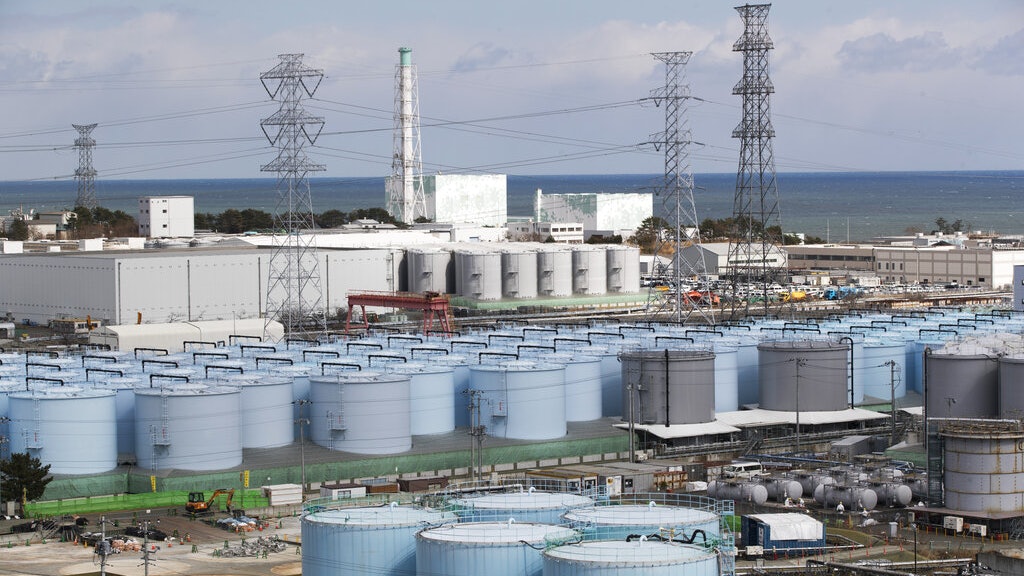The Japanese government began injecting seawater into the tunnels of the Fukushima Daiichi Nuclear Power Plant to prepare for the discharge of nuclear wastewater. As Japan's largest exporter of agriculture, forestry and fisheries, the Hong Kong government has repeatedly opposed the discharge plan. The Secretary for the Environment and Ecology, Tse Chin-hwan, revealed that he had asked the consul general of Japan in Hong Kong why the Japanese authorities said that the nuclear wastewater was discharged into the sea after treatment and met all standards for drinking. Why not keep it for collection and reuse? As a result, the official was unable to respond.
In a recent interview with South+ and GDToday, Tse said that Hong Kong is the largest exporter of Japanese agriculture, forestry and fishery products, especially aquatic products, and the SAR Government has set up an inter-departmental team to prepare detailed radiation analysis of Japanese food from different regions.
Even if the current scientific data is in line with the standard, how can we ensure that the nuclear wastewater discharged into the ocean in the future will always be clean? Secretary for the Environment and Ecology, Mr Tse Chin-wan
He pointed out that the SAR government is awaiting the results of the risk assessment of the entire Japanese nuclear contaminated water discharge plan by the International Atomic Energy Commission and national experts to determine the specific risk scope. He pointed out that Hong Kong is far from Japan, the surrounding waters are less affected, and the main risk is to catch aquatic products in imported Japanese waters. Therefore, Hong Kong plans to ban the import of aquatic products from higher risk areas, while other sea products from lower risk areas will be allowed to be imported only after detailed inspection to confirm that they meet the standards.
In addition, in order to achieve carbon neutrality by 2050, Tse said that he plans to launch about 2027,3000 electric taxis and 700 electric buses in the market by the end of <>.
He explained that although the authorities have asked local power companies to minimize costs when procuring energy, in the long run, a more radical solution is to strengthen energy co-operation with the Mainland, such as establishing renewable energy bases in neighbouring areas so that energy supply can be stable and low-carbon.
In addition, Hong Kong will step up its promotion of the use of low-carbon energy. Xie Zhanhuan said that at present, about six newly registered private cars in Hong Kong have become electric vehicles, but due to Hong Kong's relatively unique geographical environment, mountainous and dense buildings, and considering that there are also large double-decker buses in public transportation, it is difficult to find new energy models suitable for driving needs in the international market.
He pointed out that it has cooperated with BYD Group, a new energy vehicle company in Shenzhen, including providing a certain number of electric vehicles as taxis for trial operation in Hong Kong, and adjusting the electric vehicles to be put into the Hong Kong market in the future according to Hong Kong's unique geographical environment and urban traffic conditions. This year, the first hydrogen fuel cell double-decker bus trial will be launched, he pointed out that hydrogen vehicles will also be the focus of future cooperation between Hong Kong and the mainland, and green finance is undoubtedly an important driving force in the process of carbon neutrality transformation. Hong Kong can leverage its advantages as an international financial centre and contribute to the country's achievement of the "dual carbon" goal.
Fukushima fish nuclear radiation exceeded the standard, the Federation of Trade Unions will denounce Japan's purse seine "low village" to promote the ban on fishing, agricultural products import into the Fukushima nuclear power plant discharge sewage tunnel has been filled with water Nearby marine fish body radiation exceeded the standard by 180 times, IAEA Council meeting|China severely criticized Japan's plan to discharge Fukushima nuclear wastewater, South Korean experts ended their inspection of Fukushima nuclear power plant, G7 summit to supply Fukushima food Japanese officials: hope that the outside world will deepen their understanding of the nuclear wastewater discharge plan, Japan TEPCO: Fukushima nuclear wastewater is postponed to 2024 But the plan to drain the sea remains unchanged: Fukushima nuclear wastewater or discharge into the sea after July
